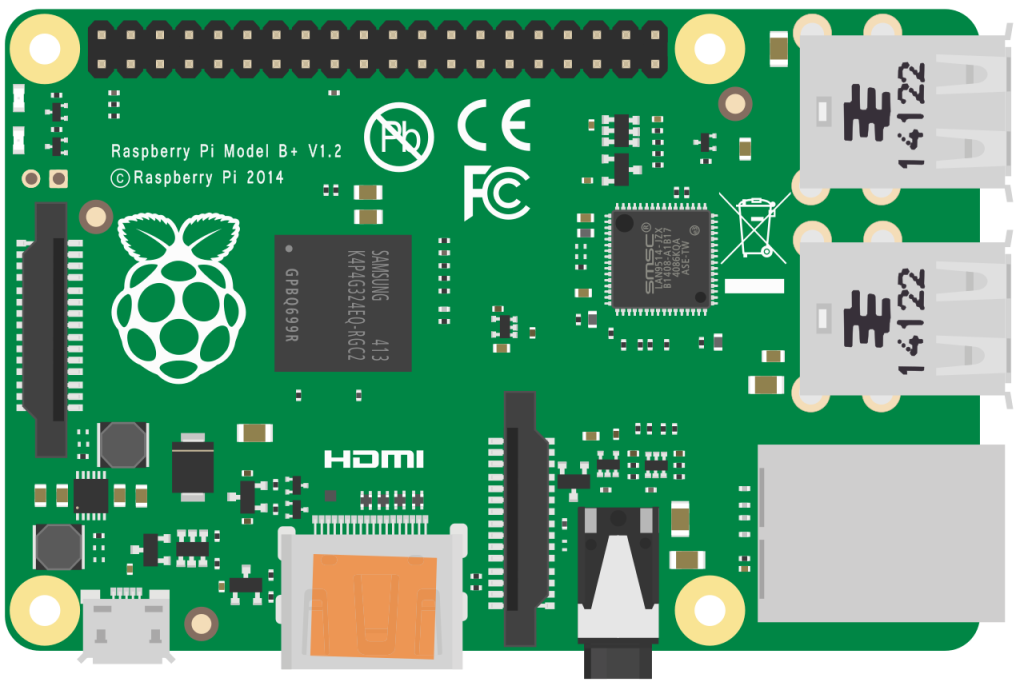Raspberry Pi
Raspberry Pi is a series of small single-board computers (SBCs) developed in the United Kingdom by Raspberry Pi Ltd in association with Broadcom. The Raspberry Pi project originally leaned toward the promotion of teaching basic computer science in schools. The original model became more popular than anticipated, selling outside its target market for uses such as robotics. It is widely used in many areas, such as for weather monitoring, because of its low cost, modularity, and open design. It is typically used by computer and electronic hobbyists, due to its adoption of the HDMI and USB standards.
After the release of the second board type, the Raspberry Pi Foundation set up a new entity, named Raspberry Pi (Trading) Ltd, and installed Eben Upton as CEO, with the responsibility for developing their computers. The Foundation was rededicated as an educational charity for promoting the teaching of basic computer science in schools and developing countries. Most Raspberry Pis are made in a Sony factory in Pencoed, Wales, while others are made in China and Japan.

ODROID
The ODROID is a series of single-board computers and tablet computers created by Hardkernel Co., Ltd., located in South Korea. Even though the name ODROID is a portmanteau of open + Android, the hardware is not actually open source because some parts of the design are retained by the company. Many ODROID systems are capable of running not only Android, but also regular Linux distributions.
Arduino
Arduino is an Italian open-source hardware and software company, project, and user community that designs and manufactures single-board microcontrollers and microcontroller kits for building digital devices. Its hardware products are licensed under a CC BY-SA license, while the software is licensed under the GNU Lesser General Public License (LGPL) or the GNU General Public License (GPL), permitting the manufacture of Arduino boards and software distribution by anyone. Arduino boards are available commercially from the official website or through authorized distributors.
Arduino board designs use a variety of microprocessors and controllers. The boards are equipped with sets of digital and analog input/output (I/O) pins that may be interfaced to various expansion boards (‘shields’) or breadboards (for prototyping) and other circuits. The boards feature serial communications interfaces, including Universal Serial Bus (USB) on some models, which are also used for loading programs. The microcontrollers can be programmed using the C and C++ programming languages (Embedded C), using a standard API which is also known as the Arduino Programming Language, inspired by the Processing language and used with a modified version of the Processing IDE. In addition to using traditional compiler toolchains, the Arduino project provides an integrated development environment (IDE) and a command line tool developed in Go.
The Arduino project began in 2005 as a tool for students at the Interaction Design Institute Ivrea, Italy, aiming to provide a low-cost and easy way for novices and professionals to create devices that interact with their environment using sensors and actuators. Common examples of such devices intended for beginner hobbyists include simple robots, thermostats, and motion detectors.
The name Arduino comes from a bar in Ivrea, Italy, where some of the project’s founders used to meet. The bar was named after Arduin of Ivrea, who was the margrave of the March of Ivrea and King of Italy from 1002 to 1014.